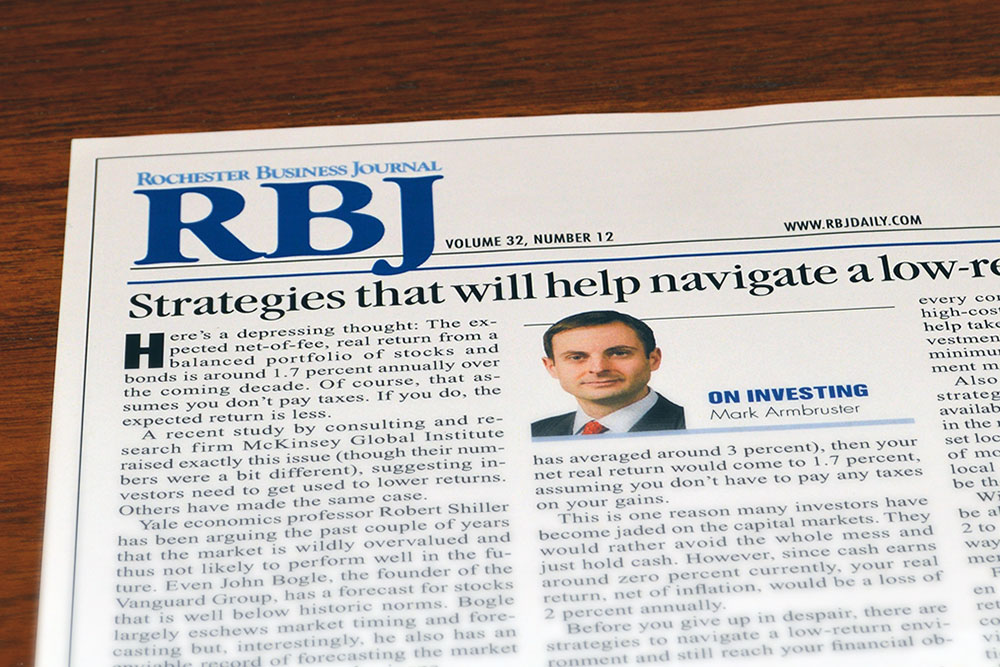Rochester Business Journal
June 26, 2015
Mark Armbruster
On Investing
Many organizations view retirement plans as a necessary evil. These plans may help attract and retain talent, but they can also be expensive, time-consuming, and difficult to monitor and administer. As a result, corporate retirement plans are often ignored by those who oversee them.
Business owners generally serve as their own plan trustee, and are ultimately responsible for the proper administration and maintenance of the plan. But many of them are unaware of the responsibility and significance of this role. So it is not unusual for the plan trustee to retain a golfing buddy or a brother-in-law to provide services to the plan. Unfortunately, this typically ends up with arrangements that are not always in the best interests of plan participants, and can ultimately create headaches or financial liability for business owners.

Even worse, the retirement plan industry is rife with abuse. Brokerage firms, banks, insurance companies and investment advisors have all jumped on the retirement plan bandwagon. Selling products that are both complicated and expensive appears to be the norm, particularly for plans of smaller size.
This combination of benign neglect by plan trustees and shenanigans by service providers often leads to plans with high costs and poor investment performance. This of course hampers the ability of plan participants to adequately fund their retirements.
The Department of Labor has taken notice and has stepped up its oversight. It is not hard to find detailed information on trustees’ fiduciary responsibilities at the Department of Labor website. However, at a minimum, trustees need to act prudently, put participants’ interests first, offer a diversified menu of investment funds and make sure the plan has reasonable costs.
Recently there have been a number of high-profile lawsuits where employees have sued their employers for providing subpar plans. For instance, the Supreme Court ruled on a case last month that was brought against Edison International for its alleged mismanagement of its 401(k) plan. The outcome was a clear message that fiduciaries have an ongoing responsibility to ensure plans are set up appropriately and managed through time in the best interests of the plan’s participants.

